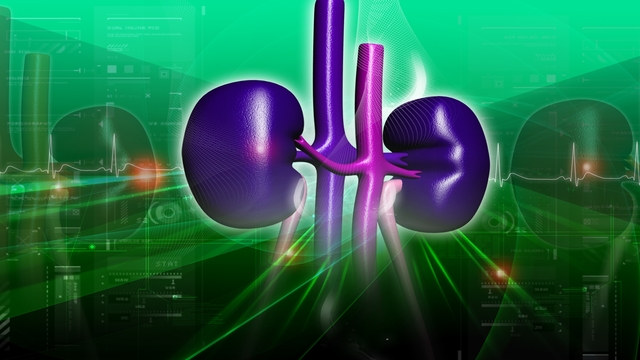 Photo: Getty Images
Photo: Getty Images
Stress is increasing in American society at an alarming rate. Almost every patient who comes to see me is experiencing some kind of stress. The body's ability to react to stress is governed by the hypothalamic-pituitary-adrenal axis (HPA axis) in which the hypothalamus makes the hormone called a corticotropin-releasing hormone (CRH), which goes to the pituitary to make the hormone ACTH, which goes to the adrenal glands to make cortisol.
Importantly, the cortisol then feeds back and inhibits both CRH and ACTH secretion. This axis is increased when someone is under stress and most importantly, the feedback is necessary to shut down the axis when the stress is over. In general, the desire is to have short-term response to stress is
and away from, for example, his reproductive organs or his thyroid.
However, chronic stress is detrimental to the body. For example, the activation of cortisol with chronic stress may lead to diabetes, osteoporosis, and problems with immune system. However, stress is very misunderstood, especially by some antiaging or alternative doctors who believe stress causes a decrease in cortisol. There is no evidence that the adrenals “peter out”
with chronic stress, as postulated by some anti-aging or alternative doctors.
In fact, stress causes an increase in cortisol. Therefore, it makes no sense to give cortisol to somebody with normal adrenal glands who is under stress. Although cortisol is a “feel good” hormone, giving cortisol to someone who doesn’t need it suppresses the body’s own cortisol production from the adrenal gland that is exquisitely capable of secreting the correct amount of cortisol at the correct time.
Giving cortisol exogenously suppresses the body’s own cortisol, so if cortisol or other steroids are given for along enough time, it can be very difficult to get off cortisol. thus, giving cortisol without clear evidence of adrenal insufficiency is one of the worst things to do to a patient.
However, if a patient truly does have adrenal insufficiency, either on a pituitary basis or an adrenal basis, then the body would have trouble dealing with stress at the regular replacement dose of cortisol. I often advise adrenal insufficient patients on cortisol when they are under stress to increase their dose by a very small amount, for example, an extra 2.5 mg a day. In general, excess cortisol is damaging, so I try to limit the exposure of cortisol and if the stress is just for a couple of days, it will be okay to increase it by 2.5 mg. If,
for example, the patient is traveling across the country that day, it would be reasonable to take the extra 2.5-mg dose. In general, one should not consistently take the higher dose of cortisol as that will lead to problems with diabetes, weight gain, and osteoporosis.
Because of their inability to respond to stress, patients with adrenal insufficiency should especially try to limit their stress. This is advice I give to all patients, but this is especially true for those with adrenal insufficiency. For example, if seeing your uncle causes stress, you should avoid seeing your uncle, if possible. If arguing with your spouse causes stress, try not to argue
with your spouse. Most of these are common sense things and often very hard for a patient to do.
There is no medicine to treat stress. If stress is accompanied with anxiety or depression, it is often helpful to treat the anxiety or depression with a medicine. There are some supplements that are purported to reduce stress; however, most of these have not been well tested. The three supplements that have been found to mildly reduce stress-induced cortisol secretion are
phosphatidylserine, gingko biloba and DHEA. A reasonable dose of these supplements is phosphatidylserine-300 mg at night, DHEA-25 mg a day in women and 50 mg a day in men and gingko biloba-120 mg twice a day. All of these supplements have side effects and their use should be discussed with your provider. In certain patients, these may be worthwhile taking.
I wish all of my patients a stress-free life.
For more information on Dr. Friedman's endocrinology practice, please go to
goodhormonehealth.com.




Add a CommentComments
There are no comments yet. Be the first one and get the conversation started!